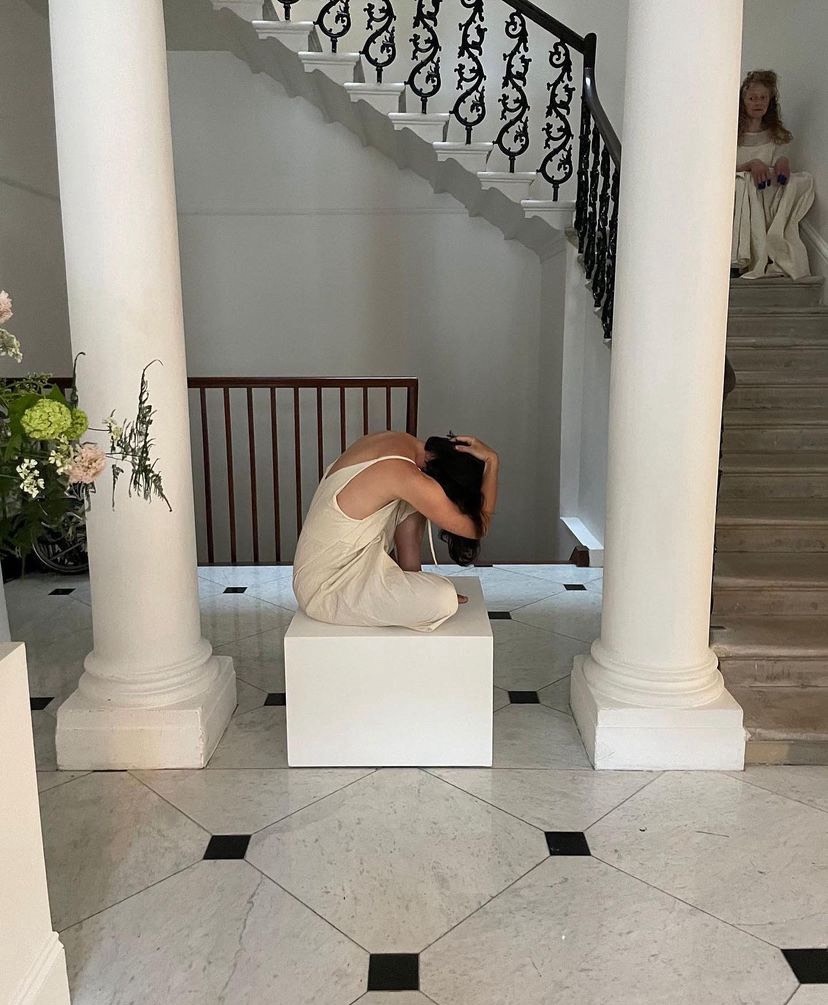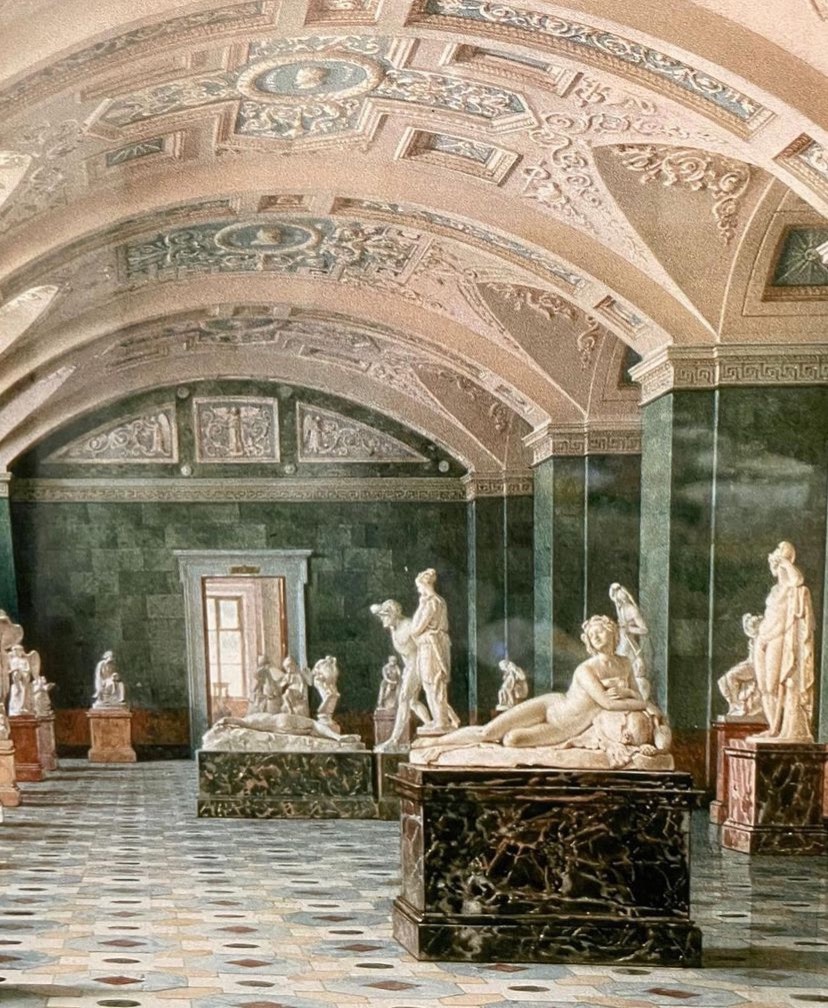Words by Maria Elena Ricci.
Galit Criden talks about modern matriarchal studies, choreography, and her artistic practice as an attempt to move towards more caring, harmonic and balanced dance-making practices. Through her artistic work, Galit invites us to radically slowing down.
Galit, can you tell us about yourself?
I am a choreographer. Only recently I have realised my work is about putting things in relationship. When thinking about dance and movement, you might practice a lot of different things which pour into choreography but you would never say “this is dance”, but to me it makes perfect sense. In fact, I work a lot with objects and there is no hierarchy between an object and a body, between an empty wall and an audience member. Putting everything in relationship is what guides me through my practice.
Right now I am focusing on matriarchal practices in the search of matriarchal spaces, specifically the embodied ones which invite gatherings of all sorts in order to explore, through performative means, what it means to be together and explore a modern understanding of the matriarchal. My focus is speaking to practitioners about how they communicate with their dancers, how they conduct a creative process and how they think about audience engagement, all from a matriarchal perspective, therefore letting this concept guide a choreographic practice. It’s inspiring and rich, also currently not used. It helped me create and collaborate with people, it’s giving me the freedom to expand what dance can be.
I didn’t come up with this. Modern matriarchal studies started in the ‘70s, and it was based on the work of leading women scholars from black feminist to indigenous, queer and second wave feminist research. It speaks directly to all levels of politics, organisation, social and spiritual, yet it does not speak about the body: that’s my way in. As a dance practitioner, I notice a gap in the research and have a way in to contribute to a field that is extremely relevant.

What is matriarchy today and how does it look like? Do we have any practical examples of systems in which matriarchy actually exist?
You need to go to women-led tribes and indigenous societies all over the world to understand how their way of life is based on a set of values which are not opposite to patriarchy, but different, and investigate the way they run their lives on various different levels.
When it comes to my research, it’s completely linked to the modern matriarchal studies scholarship, which is offering a way of engaging in the world, as well as interesting solutions such as peace conflicts from a matriarchal perspective. You can say that many collectives are trying to practice different elements of matriarchal studies.
Some Matriarchal inspirations for my research are:
1. Dr. Heide Goettner-Abendroth goettner-abendroth.de/en/matriarchy/matriarchal-studies/
2. Dr. Arella Shadmi www.spdbooks.org/Products/9781771337090/the-legacy-of-mothers-matriarchies-and-the-gift-economy-as-post-capitalist-alternatives.aspx
3. Andrea O’Reilly jarm.journals.yorku.ca/index.php/jarm/article/view/40551
4. Sara Ruddick www.jstor.org/stable/3177749
5. José Esteban Muñoz’s Cruising Utopia: blogs.lse.ac.uk/lsereviewofbooks/2020/11/13/book-review-cruising-utopia-the-then-and-there-of-queer-futurity-10th-anniversary-edition-by-jose-esteban-munoz/
What are the values of modern matriarchy and do we apply them to dance?
1. Harmony, such a challenge for a choreographer when leading an artistic project;
2. Balance, creating a balanced, non-hierarchical space in which even if you are the choreographer you are not more important than others;
3. Gift economy, meaning giving because I am in a position which allows me to help without getting getting something in return;
4. Relations, I’m always in relationship to others (e.g. artistic collaborations);
5. Care and Kinship, extending mother work to everyone because anyone can practice these values. How do you care for your performers? What kind of language do you use?
As an example, my daughter loves babies, her “soft skills” are empathy, listening and needs. Yet you’d never say to her to develop her skills as you would with a child who is good at playing soccer! These are the skills that I bring to the main stage and use to think about dance. There are a lot of questions on how to do it.
How can matriarchy be used as a system in which epistemic change is effective?
Noticing your environment very well and noticing the powers which manipulate the space, people and institutions. The minute you notice you can make a choice to work, collaborate and perform differently; then, you’ll feel a sense of empowerment.
For example, for the last six years I’ve been performing outside of the theatre, not because I wanted to but there is no funding and there is a lot of control on my artistic freedom. These spaces are run by capitalistic, patriarchal systems. I decided to start working in public spaces and, when I am invited in institutions, I keep noticing the powers governing such spaces and offer an alternative way of working.
In terms of the performance itself, in my personal response there is no climax, maybe there is no applause moment, it is very stretched out and extremely slow. I work a lot with mother artists, who are women, men and people with caring responsibilities. Furthermore, I understand my role as a mother of two within these performances, my role as the negotiator, someone who holds the space for performers and for them to see me while these dreadfully long performances happen, because they need kind eyes to support them through the process.
How do you select what you want to work with and how do you put things in relationship during the creative process?
How I select closely corresponds to the noticing of my environment without any kind of rush. The use of object, for example, started during the Covid-19 pandemic, where my everyday environment was children objects. They slowly piled up until it was the only thing I could see. Particularly when I can’t really move as I would like to, I enter into a very intense relationship with what is going on in the present moment: sometimes because of finances, a limiting aspect for most artists, during the Covid-19 pandemic, as you literally couldn’t move, and finally when I was in bed rest at the end of my pregnancy, which forced me to select working with objects. I work with what I have, keeping in motion.
The only way of putting things together I found until now is to radically slowing down, to the point of reaching boredom. That’s why I don’t perform anymore: I’m bored out of my own performances! Yet, the effect they create… moving. An example of this is Will you care for me?, a performance rooted in the matriarchal perspective, a very soft, almost motherly work. The performers were standing on plinths and audiences had to pick up their head and look at them, with nothing else but a soft exchange. The title came up because during the performance audience members addressed the performers asking questions like: “who’s taking care for you?”, “have you eaten?”, and “are you taking a break?”. It generated an immediate relationship with the audience, to an extend they got confused and asked these bizzarre questions.
Who are the performers you work with?
Financially, I’m unable to have a company, but I have a weird assembly of about 10 people who are mostly independent artists and have a strong performative capability. These performers are interested in my very exposed, intimate research and all have caring responsibilities.
Is Open Desk still going on? Can you tell us more about the project?
Yes! My next Open Desk will be at Liminal Gallery in Margate in February. You can book here. Open Desk is such a gorgeous project! It’s the easiest trick in the book: inviting people for a conversation. Using the methodology of conversation in relationship to embodied practice, I prepare by choreographing a conversation and an encounter. I’ve met over seventy people of different ages and different perspectives, people interested in alternative conversations. We speak, we take a walk, we eat, we draw and we ask questions about how the modern matriarchal perspective can influence our practice of life. It’s simple, intimate, comfortable, and it’s about healing. It’s been inspiring beyond words.
